Digital Literacies Toolkit
Highlights
We created the Digital Literacies Toolkit as a free resource to help students to improve their online skills and awareness of good practice.
Welcome to the Digital Literacies Toolkit. This interactive learning tool was designed by Julie Watson and developed by eLanguages in Languages, Cultures and Linguistics at the University of Southampton with support from the university's Student-Centredness Fund. The purpose of this set of learning resources is to help students:
- explore the educational uses of Web 2.0 tools and services;
- familiarise themselves with a range of useful applications for study-related purposes;
- highlight good practice in the use of social software and the internet, in general.
If you find these resources useful, why not sign up for a Pay, Access and Learn account, where you can license a variety of packages to help with academic study skills?
The Digital Literacies Toolkit
 What is digital literacy?
What is digital literacy?
Listen to student views about the meaning of digital literacy and the kind of skills that the term suggests. Decide what your own view is and reflect on some of your own digital literacy skills.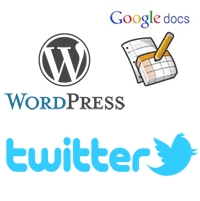 Digital tools for student life
Digital tools for student life
Review the online tools you already make use of for study-related purposes and explore the different uses or affordances of a range of other tools.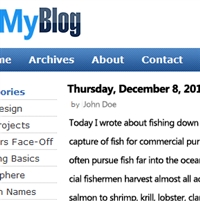 Managing your online presence
Managing your online presence
Consider the pros and cons of having a digital identity, investigate your own digital footprint and reflect on whether you need to manage your online presence or not.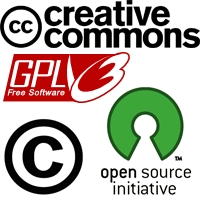 Using other people's digital content responsibly
Using other people's digital content responsibly
Explore issues of ownership in regard to digital content on the internet and find out how to identify what you can and cannot freely re-use.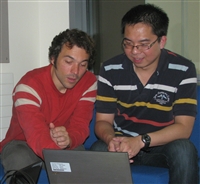 Creating and sharing digital content on your course
Creating and sharing digital content on your course
Practise identifying appropriate tools for creating or sharing digital content, and try out some of them to evaluate their usefulness. Your Personal Learning Environment
Your Personal Learning Environment
Think about the skills you need to make effective use of a personal learning environment (PLE). Listen to other students talking about how they manage their learning through a PLE and explore useful PLE applications. Digitally enhancing your job prospects
Digitally enhancing your job prospects
Listen to student views about how digital literacy skills can influence employability. Consider how to improve your own job prospects through your online activity.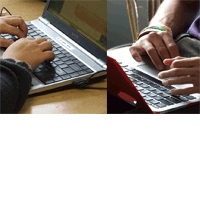 Collaborating in coursework online
Collaborating in coursework online
Listen to students talking about their preferred online collaboration tools, think about the skills needed for working together online and consider the potential of some specific tools for this purpose.
Conditions of use
If you are a student you may access and use these learning resources freely for the purpose of learning.
If you are a teacher, learning advisor or represent an educational institution in the UK or elsewhere in the world, you may use the Digital Literacies Toolkit and its contents for non-commercial, educational purposes by linking to this homepage URL or to individual pages (URL) of any items in the toolkit.
The intellectual property rights in the Digital Literacies Toolkit shall at all times remain the property of the creators. You may not disassemble, decompile or reverse engineer any of the content, including the individual learning resources which comprise the toolkit.
Feedback
If you have any feedback about the Digital Literacies Toolkit, please email us. Thank you!


 eLanguages on LinkedIn
eLanguages on LinkedIn eLanguages on Facebook
eLanguages on Facebook e_languages on Twitter
e_languages on Twitter elanguages_ on Instagram
elanguages_ on Instagram